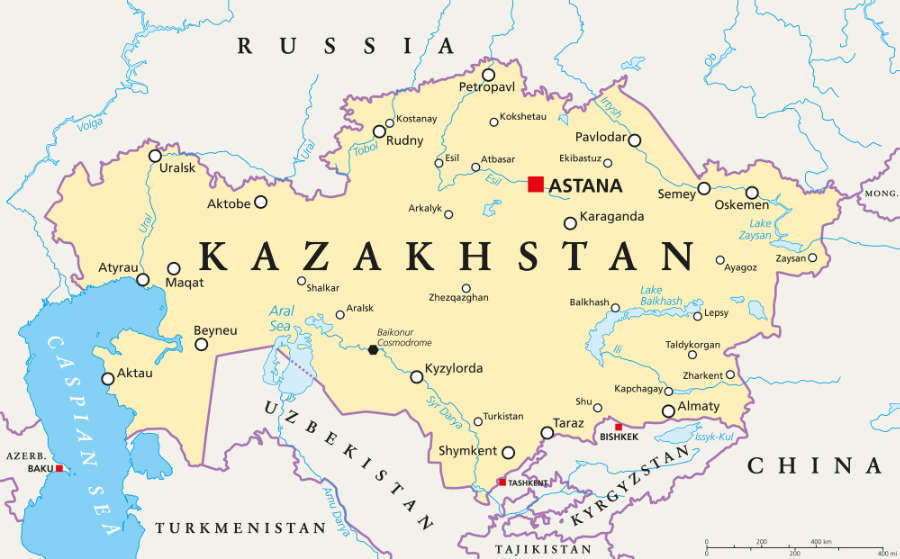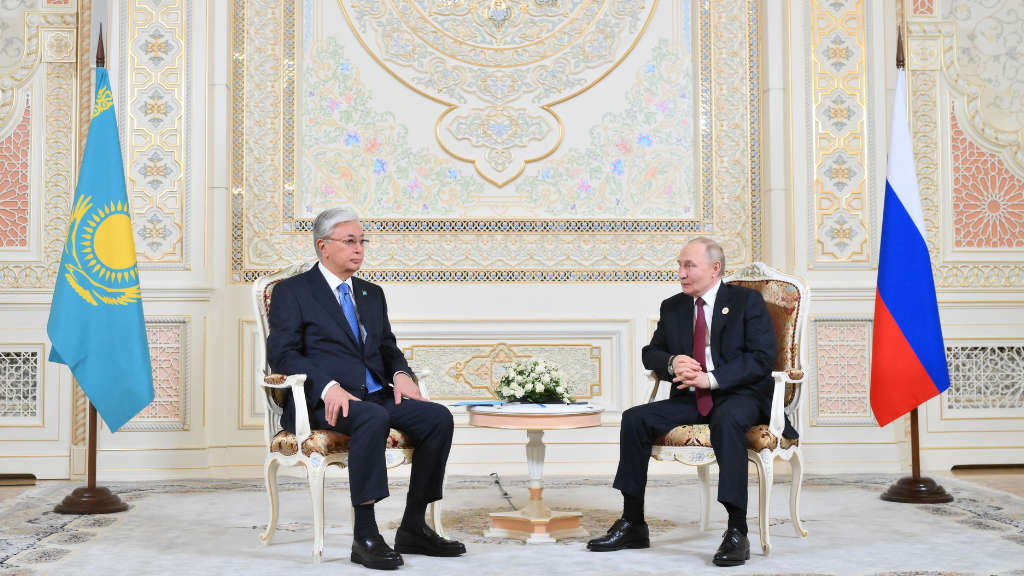The Russian President, Vladimir Putin, has met with the Kazakhstan President, Kassym-Jomart Tokayev, in Dushanbe. This is what they had to say:
VP: “I am delighted to have this opportunity to hold a separate meeting with you on the sidelines of the CIS events we both attended, to talk about the further development of our bilateral relations and to once again compare notes on some international issues.
As you know, we value our relations with Kazakhstan. By and large, I can confidently say that there are special relations between our countries, and not only because of our personal kind and friendly relations but also because Kazakhstan and Russia, to some extent, initiated integration processes in the post-Soviet space.
At one time, Kazakhstan initiated the establishment of the Eurasian Economic Union (EAEU), and today it is actively initiating many other projects. It is worth noting, of course, that everything we are doing on the bilateral track is also promoting our cooperation with our colleagues within the CIS.
There are also many bilateral issues that constantly need our attention. Personally, I would like to express my gratitude to you for the attention you are giving to the development of Russian-Kazakhstani ties. I am confident that this meeting in the bilateral format will also contribute to the further development of our ties.”

KJT: “This meeting is very important for me and for us. In a few weeks, on November 12, I will make an official visit to Russia at your invitation. We attach great importance to this event, and we are preparing for it. We believe that it will be a significant milestone, as it will give an additional impetus to our strategic partnership and alliance.
You are absolutely right to say that we are natural allies. Kazakhstan and Russia share the longest continuous state border in the world—7,591 kilometers. The profound ties between our nations demonstrate that we have no other path but one of an enduring alliance, a deep strategic partnership, and, ultimately, unwavering friendship.
The results of this partnership are clear. Ahead of my visit to Russia, I can note that our mutual trade reached a substantial US$28 billion last year. Furthermore, Russia remains one of the leading investors in our economy, with Russian businesses having invested over US$26 billion in Kazakhstan over the years.
Last year, we saw US$4 billion in new Russian investment. We are encouraged that this positive trend is holding strong this year, and we expect to see good results. I am confident that next year, or in 2027, we will reach the significant milestone of US$30 billion in mutual trade.
Beyond the economy, our cultural and humanitarian ties are advancing dynamically. A telling example is the nine branches of Russian universities now operating successfully in Kazakhstan – a powerful symbol of our shared future. We intend to continue this close collaboration.
Adding to this vibrant exchange, a Festival of Kazakh Culture is currently underway in Moscow, culminating in a gala concert timed to my visit. We have a great deal more to discuss, with several major projects on our agenda. The construction of a nuclear power plant with Rosatom’s direct participation is a prime example. This is just one of many major undertakings; to date, 114 joint projects worth almost US$22 billion have already been realized. And this work will most certainly continue.
Kazakhstan’s economy is primarily driven by the energy sector, a major contributor to its GDP. With substantial reserves in the Caspian Sea, Kazakhstan is one of the largest oil producers in the region, with oil and gas exports accounting for around 59% of total export revenues. The country is also the world’s largest producer of uranium, contributing approximately 35% of global production, alongside significant outputs of copper, gold, zinc, and lead. While agriculture represents about 5% of GDP, it is critical for employment and food security, with Kazakhstan being a leading wheat producer for both local use and export. The manufacturing sector, including food processing and textiles, is growing, particularly in the automotive industry, supported by state initiatives. Additionally, the services sector has expanded to account for about 60% of the economy, driven by technology and retail, with increasing participation from international retailers.
Both Kazakhstan and Russia are members of the Eurasian Economic Union (EAEU) which has reduced tariffs on most traded goods to zero. Efforts are being made to digitize the customs unions and to further facilitate the smooth passage of bilateral goods delivery. The development of unmanned digital highways between Russia, Kazakhstan and China is also being discussed.
Further Reading

 Русский
Русский














